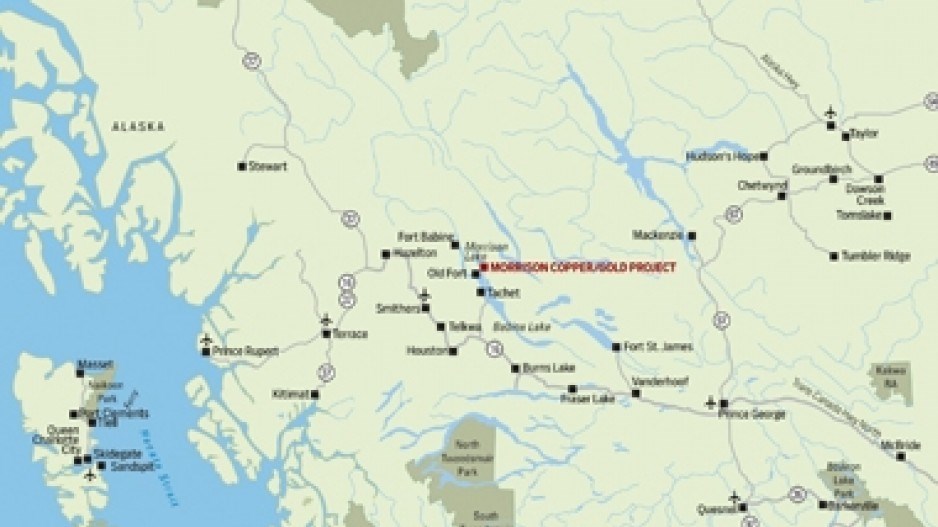Vancouver-based Pacific Booker Minerals Inc. (TSX-V:BKM) is crying foul after the province denied the company an environmental assessment certificate in early October for its proposed Morrison copper-gold project near Smithers.
Environment Minister Terry Lake and Mines Minister Rich Coleman announced October 1 that they were denying the certificate. The ministers claimed that, "on the advice of the Environmental Assessment Office (EAO)," they had determined that:
•the project might affect "a genetically unique sockeye salmon population" that contributes to the Skeena River sockeye;
•potential long-term liability for the province and environmental risk "were not acceptable in this case"; and
•insufficient data about Morrison Lake and the potential for diminished long-term water quality "[was] not an acceptable risk."
However, critics of the decision are pointing out that the EAO's assessment raised no cause for alarm (see sidebar).
Pacific Booker director Erik Tornquist told Business in Vancouver that there's a disconnect between the EAO assessment and the project's rejection.
"It's difficult to understand," he said. "The [EAO] reviewers determined there were no significant adverse effects, so on that basis, the certificate should have been issued."
Gavin Dirom, president and CEO of the Association for Mineral Exploration BC, also expressed concern over the gap between the environmental assessment findings and the province's decision.
"It was challenging to see how the [EAO] report and the actual findings in the environmental assessment led to the final decision."
Dirom called for more transparency in the province's decision-making processes.
But Lake denied that there's a disconnect between the government's EAO assessment and the province's rejection of the project, as proposed. He said the EAO's assessment was predicated on the idea that the project met certain conditions and would implement mitigation efforts.
He said that aside from the environmental assessment, the government considered other evidence before rendering its decision.
"In this case, there was a letter from the Environmental Protection Division, there was a letter from the energy and mines ministry and two letters from First Nations, all expressing serious concerns about the ability of those conditions to offset or mitigate the concerns that had been identified," Lake said.
Tornquist, however, denied that there were any problems with the mitigation measures.
In a company statement, Pacific Booker argued that its environmental certificate application contained approximately 16,000 pages, committed to 32 conditions and "reasonably addressed all the issues raised by government agencies, First Nations and the public."
The company has stated that it is "strongly committed to continue to work toward bringing the proposed Morrison copper-gold project to commercial production."
Tornquist said if negotiation with the province fails, the company believes it has other potential recourse to push the project forward. •




